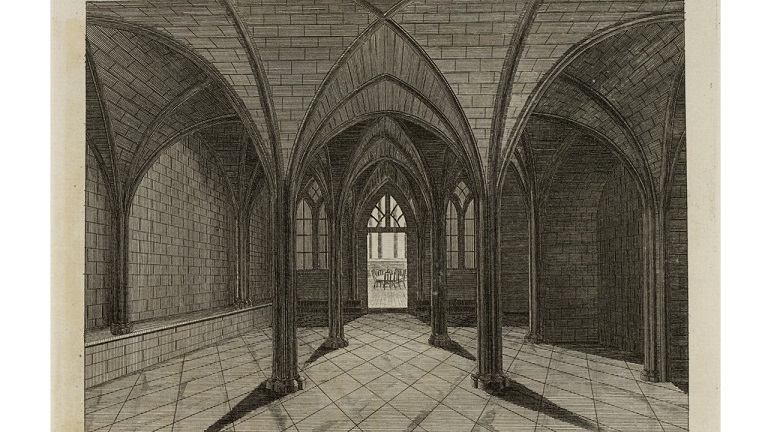.
Conversion
The great advantage of the years
I stacked up often carelessly
And often as a mutineer
Against all simple things and dear,
Is how I purely now by grace
Within the smallest moments trace
A curious sublimity.
For though I once played beauty false
And goodness for a sorry fool,
Each morning now my soul exalts
When first the sun begins its waltz,
And then I sense beneath my skin
A longing calling me within
Some newly sacred vestibule.
.
.
Jeffrey Essmann is an essayist and poet living in New York. His poetry has appeared in numerous magazines and literary journals, among them Agape Review, America Magazine, Dappled Things, the St. Austin Review, U.S. Catholic, Grand Little Things, Heart of Flesh Literary Journal, and various venues of the Benedictine monastery with which he is an oblate. He is editor of the Catholic Poetry Room page on the Integrated Catholic Life website.















Jeffrey, I love this beautiful, concise portrayal of your conversion experience. And that closing phrase, the “newly sacred vestibule.” Profound!
That is a precise and wonderful testimony of the changes that are manifested within the heart and soul.
You make us old people feel much better!
Sweet poem.
Paddy
“A longing calling me within / Some newly sacred vestibule.” is quite a brilliant description of the mysterious, clearly God-initiated, conversion experience. I really like your creative and consistent rhyme scheme, and there are some great rhymes, too. Since “exalts” is a transitive verb, but has no stated object in the poem, I think I would have preferred “exults” (to rejoice greatly, to be jubilant). I think either is a great rhyme for “waltz.” (But then, I’m partial to consonantal rhymes.)
This poem is powerful and beautiful in its brevity… to me, this admirably crafted composition sings of wisdom, wonder, and the true meaning of joy. Jeffrey, thank you!
What a beautiful word “vestibule” is, especially right there at the end of your poem.
I’ve noticed this in your other poems too: after an intricate walk through the inner mazes of thought, a sudden and marvelous breakthrough return to the concrete. The hush of the vestibule is the center of the labyrinth, and the beginning point of a new progress.
I think of the first mansion in St. Teresa’s Interior Castle: maybe she even calls it a vestibule.
“Conversion” means to be changed from one thing to another. The movement in your poem from mutineer to sacred vestibule immerses us in your conversion while giving us pause to reflect on our own. Nicely done.